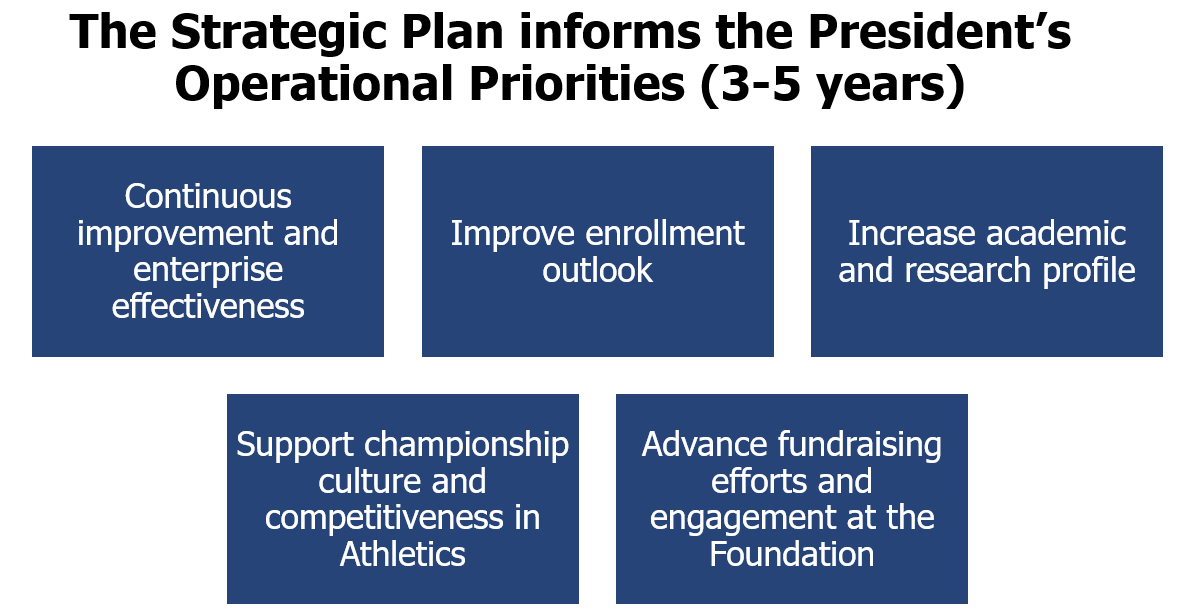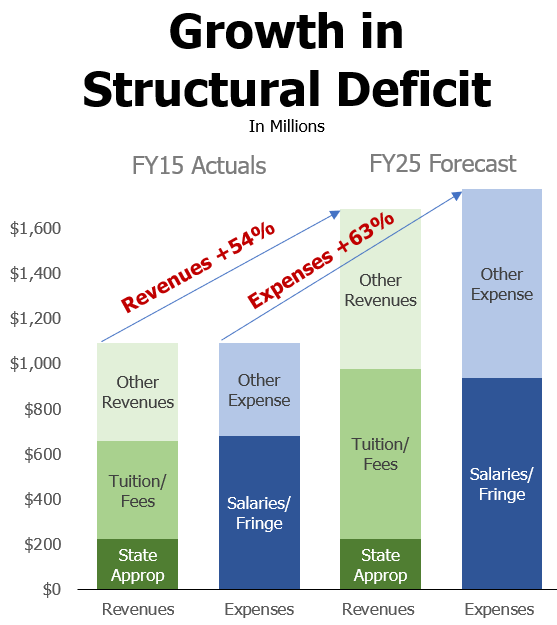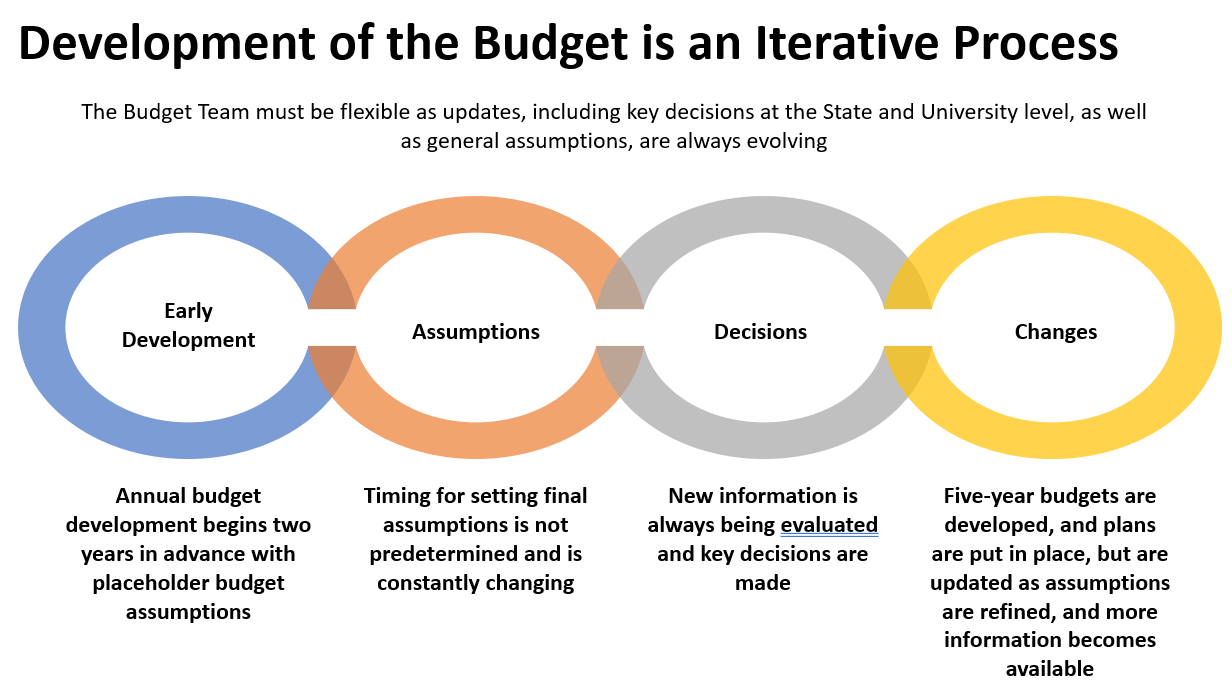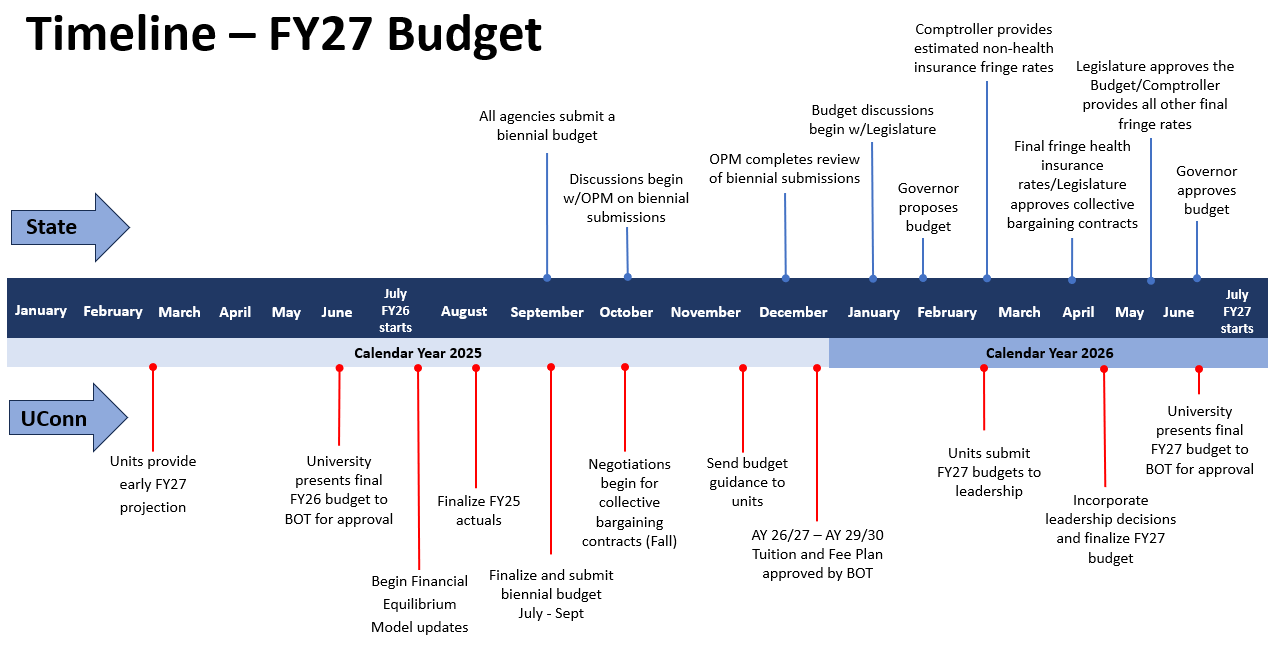Communications
-
- June 23, 2025 President’s Message to the University Community
- June 24, 2025 Presentation to the Board of Trustees Financial Affairs Committee and Meeting Recording
- June 25, 2025 Budget Announcement
- July 7, 2025 Recording of the Budget Town Hall
- July 11, 2025 Travel Guidance
- July 14, 2025 University Senate Presentation
- Coming Soon – Frequently Asked Questions

Actions Taken to Date
5 Year Financial Sustainability Plan includes revenue increases and expenditure controls (rescissions)
University-wide budgeting guiding principles provided (see below)
Budget hearings conducted with units and departments; multiple discussions with various stakeholders
Updated budget forecasts requested

Budgeting Guiding Principles
In our decentralized budget environment, it is the responsibility of unit leaders to be fiscally accountable and ensure budget decisions are based upon the following guiding principles, no matter the fund source:
- Improves enrollment outlook.
- Improves academic and research profile.
- Maintains compliance with accreditation standards.
- Generates new (external) revenue streams.
- Demonstrates significant cost savings while maintaining mission-critical roles or infrastructure.
- Creates or maintains new or expanded opportunities for student learning, engagement, or success.
- Addresses a bona fide emergency (e.g., health/safety, preservation of property).
Addressing Our Budget Deficit: A Collective Responsibility
Our university is currently facing a budget deficit that requires thoughtful, strategic action across all levels of the institution. As a decentralized university, financial sustainability begins with decisions made at the departmental level. Each unit plays a vital role in identifying opportunities for cost savings, increasing efficiency, and aligning resources with strategic priorities. These localized efforts, in turn, inform broader decisions by senior leadership. By working together—starting from the ground up—we can build a more sustainable financial future for the entire university community.
Stay Connected with Your Financial Analyst
Each department is partnered with a dedicated financial analyst from the Office of Budget, Planning, and Institutional Research. We strongly encourage regular communication with your analyst throughout the year. Ongoing collaboration helps departments stay ahead of potential budget issues, make informed decisions, and align resources with strategic priorities. Your analyst is a key partner in navigating financial challenges and identifying opportunities for sustainable planning.
Find out who your analyst is by clicking here.
Steps Departments Can Take to Address Budget Deficits
Review Spending Patterns
Conduct a thorough review of current expenditures to identify non-essential or discretionary costs that can be reduced or deferred.
- Prioritize Core Activities
Focus resources on mission-critical teaching, research, and service activities. Consider scaling back or pausing lower-impact initiatives. - Evaluate Staffing Needs
Assess vacancies carefully before hiring. Explore options for restructuring roles, adjusting workloads, or sharing resources across units. - Increase Revenue
Identify opportunities for new or expanded revenue streams—such as certificate programs, summer courses, or partnerships. - Optimize Course Offerings
Ensure course offerings are efficient and meet student demand. Consolidate low-enrollment courses or cross-list where appropriate. - Collaborate with Other Units
Look for shared services or joint initiatives with other departments to reduce duplication and pool resources. - Engage Faculty and Staff
Involve your team in identifying cost-saving ideas. Transparency and shared ownership can lead to more sustainable solutions. - Monitor Budget Performance
Regularly track financial performance against your plan, and adjust quickly when off-target. - Communicate with Leadership
Keep your dean and financial administrators informed of challenges and progress. Early communication allows for better support and planning.

